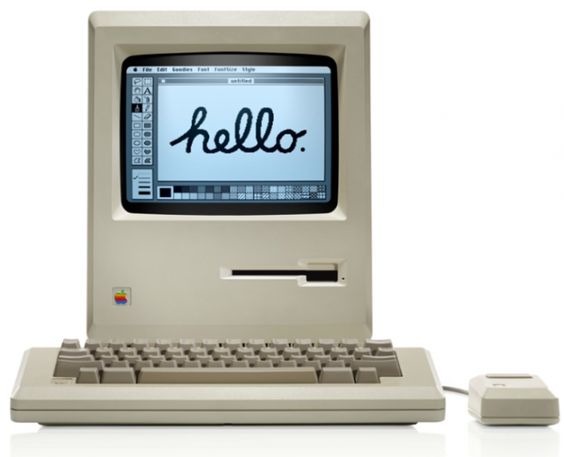The soul of a company
November 20, 2022
November 20, 2022

There have been approximately infinity thinkpieces about Twitter lately, so I'm hesitant to write another. But there is one aspect of this whole circus that I felt was worth calling out.
Some people have been comparing Elon Musk's corporate takeover and internal upheaval with Steve Jobs' legendary return to Apple in the late 90s. Maybe if you squint hard enough and suspend all reasonable doubt you can make this connection, but I think Elon is operating like the exact opposite of Steve.
In Apple's case, Jobs and crew had created a little renegade computer company in the late 70s, focused around a newly humanist approach to technology. They developed a strong vision of what personal computing could be, and that vision was already highly concentrated in their early products. Look at this 1984 release video of the original Mac. That product, and that company, already had a personality and a soul that was unlike anything else out there.
But as a business it was shaky, and Jobs was an unsteady punk who lacked discipline. So he got kicked out of his own company, and spent years away from Apple developing a stronger point of view about making computers and running businesses.
In the meantime, a revolving door of corporate goons took over Apple and tried a bunch of Haha Business product strategies that steered the company away from its humanist roots. It became a sad husk of its former self. At the low point, Apple's product line was confusing, stale, overpriced, and getting dunked on by clone manufacturers who were making more powerful Macs for less money. (I owned one of the clones during this dark era!)
When Jobs came back to Apple, the company was in free fall. He brought over inventive tech from NeXT, along with a decade of extra wisdom. He fired the corporate goons, drastically simplified the product line, and launched a bunch of new products oozing with that same concentrated vision we saw in 1984.
He restored Apple's soul. His best articulation of this was the iconic "intersection of liberal arts and technology" presentation in 2011.
OK, now on to Elon. Is he saving Twitter like Jobs, or destroying it like a bull in a china shop?
The answer depends on how you define the soul of Twitter. This is somewhat up for debate, because nobody has ever quite figured out what the hell Twitter is supposed to be. The company's most recent vision statement was "serving the public conversation" — a line vague enough to be interpreted in 100 different ways.
But if you parse it out, there's something meaningful in that statement. Twitter is about democratizing global access to information in real-time, and importantly, doing so in a way that's as safe and healthy as possible for everyone who participates. There is a strong humanist sensibility in Twitter, just like Apple.
Due to the nature of the product, Twitter has to operate more like a government than a company. It needs to look out for everyone on the platform, listen to them, and continually balance strategic decisions with the ever-shifting grounds of global culture. Twitter is about giving people a voice, taking care of them, and speaking truth to power. It will always be imperfect in the same way that democracy is imperfect. It needs its employees to care deeply about perfecting it anyway.
And that's why I think Musk is the opposite of Jobs. Mechanically you could argue his approach is similar (coming in hot, shaking up the company, firing people, and so on.) But his actions so far completely contradict Twitter's roots. Free speech absolutism does not make a platform safer. Brutalist leadership does not create a healthy environment for sharing ideas and making difficult ethical choices. Moving fast and breaking things will erode trust. Eliminating the inclusive culture makes it harder to represent the broad global population that Twitter supports.
It's possible that Elon will turn Twitter into some different thing that becomes successful anyway, due to his memelord reality distortion field and interminable hero worship from like-minded techbros. But he is not a Jobs-esque visionary who's righting the ship after it got off track due to mismanagement.
He's much more like the clumsy corporate goons who wrecked Apple after Jobs left. His ownership is rapidly chipping away at Twitter's soul. It may never come back again.
Want to get new posts by email?
Subscribe to my newsletter: